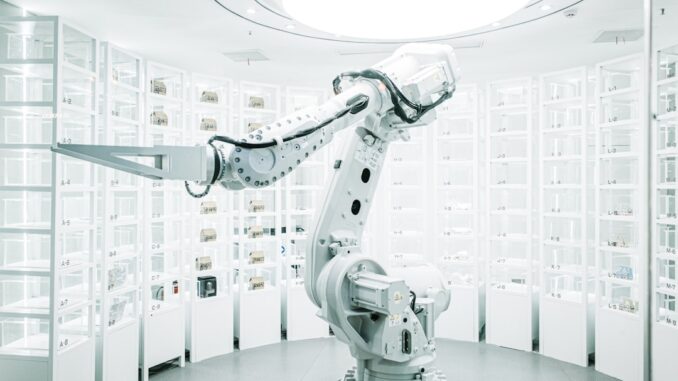
Summary
This article discusses how AI is revolutionizing healthcare, focusing on its potential to improve patient care and diagnostic accuracy. It highlights the use of AI in medical imaging, predictive analytics, and virtual assistants, while acknowledging the challenges and opportunities that lie ahead. The article emphasizes the importance of integrating AI into healthcare systems to enhance the overall patient experience and streamline medical processes.
Main Story
Okay, so let’s talk about AI in healthcare, especially at SGPGI, because it’s seriously changing things up. We’re talking about a world where doctors can diagnose stuff way more accurately, personalize your treatment, and basically, make the whole process so much better for us patients. It’s pretty exciting, right? And it’s not some far-off sci-fi fantasy either – some pretty groundbreaking stuff is already happening, especially with medical images, predictions, and even virtual health helpers.
AI: The Master of Medical Images
One area where AI’s really shining, is analyzing medical images. Think X-rays, CT scans, those intimidating MRIs… AI algorithms, especially the clever deep learning ones, can zoom through these images with crazy speed and accuracy. I mean, they can spot teeny-tiny things, like early signs of a tumor or a subtle fracture. It’s often faster and more accurate than any human radiologist. For instance, imagine an AI instantly picking up on a potential collapsed lung. That kind of rapid diagnosis can save lives. It’s not just some hypothetical future scenario; it’s happening now. Pretty amazing, huh?
Predicting The Future Of Your Health
Beyond that, AI is getting really good at predicting things. By analyzing piles of patient data—your medical history, lifestyle, genetics—AI can pinpoint folks at high risk of developing a particular issue. So, for example, let’s say the AI spots that you’re showing a high likelihood of developing sepsis; this is not a good thing. It’s like having a super-powered health detective; it allows doctors to get proactive, intervene early, and possibly prevent these conditions from happening at all or managing them more effectively. This shift from reacting to preventing is a total game changer.
Hello, Virtual Health Assistants!
And then there are these AI-powered virtual assistants and chatbots. It’s like having a 24/7 medical buddy on your phone. They can give you info, send medication reminders, help schedule appointments, and even do some basic symptom checks. Seriously, they’re helpful! They empower you to take charge of your health and also free up doctor’s time so they can focus on the complicated stuff and have more valuable face-time with patients. Like, a chatbot could triage patients, pointing them to the right level of care, reducing wait times and just making the whole process smoother. I used one recently when I was ill, and it was such a lifesaver.
Some Things To Think About
Okay, it’s not all sunshine and roses; there are a few bumps in the road. We’ve got to be super careful with patient data, making sure it’s safe and used ethically. We need strong rules and regulations for AI in healthcare to make sure everything’s above board, and, importantly, that patients feel safe. But, if we tackle these things head-on, the rewards could be tremendous. It’s pretty clear AI is going to be a huge part of healthcare’s future. And it’s not just about making things more efficient, it’s about making it more personal, more proactive, and, ultimately, just so much better for all of us. The journey is ongoing, for sure, but it’s certainly an exciting one. And that’s something, you’ve got to admit.


A 24/7 medical buddy on your phone? I’m imagining the AI chatbot having to gently persuade me not to self-diagnose with every possible rare disease after a midnight internet search.
That’s a funny and very valid point! It does highlight the potential for increased health anxiety. Perhaps these AI assistants can also be programmed to offer reassurance and guide users toward reliable information sources instead of random internet searches, what do you think?
Editor: MedTechNews.Uk
Thank you to our Sponsor Esdebe – https://esdebe.com
The discussion around AI’s potential for predictive health analysis is particularly compelling. Imagine the impact on preventative care strategies and resource allocation, shifting the focus from reactive treatment to proactive health management.
Absolutely, the predictive analysis aspect is incredibly exciting. It really could revolutionize how resources are allocated, enabling us to shift from addressing illnesses to preventing them. This proactive approach will certainly lead to better patient outcomes.
Editor: MedTechNews.Uk
Thank you to our Sponsor Esdebe – https://esdebe.com